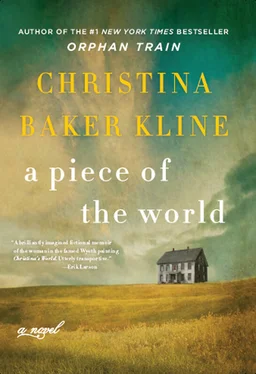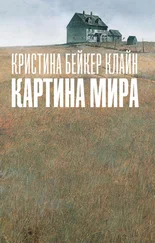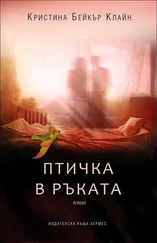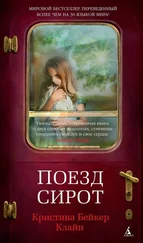A hen-breasted nurse pushes me in a wheelchair into an elevator, accompanied by Sam and Ramona, and up to a small private room on the eighth floor with an iron bed and a view of the neighboring rooftops. It smells of paint thinner.
“When are visiting hours?” Ramona asks.
The nurse consults my chart. “No visitors.”
“No visitors? Why on earth not?” Sam asks.
“The prescription is rest. Rest and solitude.”
“That hardly seems necessary,” Ramona says.
“Doctor’s orders,” the nurse says. “I’ll leave you alone with her for ten minutes. Then you need to let her settle in. You can come back to collect her in a week.” Looking over at me, she lifts her beak. “There’s a hospital gown on the bed for you to wear. The doctors will do their rounds later in the afternoon. Any questions?”
I shake my head. No questions. Except—“What is that smell?”
“Ether,” Ramona says. “Horrid. I remember it from when I had my tonsils out.”
“And overcooked peas,” Sam adds.
When the nurse leaves, Ramona pulls a book out of the bag she’s carrying and places it on the nightstand. My Ántonia . “I haven’t read it, but apparently it’s all the rage. Country life in Nebraska.” She shrugs. “Not my cup of tea, but if you get bored . . .”
Looking at the book jacket, gold with bronze lettering, I realize that this must be the third in Cather’s prairie trilogy. I read the other two at Walton’s suggestion. A line from O Pioneers! pops into my mind: “People have to snatch at happiness when they can, in this world. It is always easier to lose than to find . . .”
“We’ll ask the nurse exactly when you’re being discharged so I can be here to pick you up,” Sam says.
“I’ll be counting the minutes,” I say.
“If you finish that book, I can bring more,” Ramona says. “Sherwood Anderson has a collection of stories everybody’s talking about.”
Once a day a gaggle of doctors, gooselike in their white coats, march into the room and gather around my bed, led by a specialist I come to think of as “Big Bug” because of his eyes, enormous behind oversized spectacles. The doctors instruct me to stand up, wave my arms, and stomp my legs, and then, muttering among themselves, troop back out again. They act as if I don’t have ears, but I hear everything they say. The first few days they speculate that perhaps electricity will help. By day four they decide that electricity would be disastrous. Nobody seems to have the slightest idea what’s wrong with me. On the seventh day, Big Bug releases me into the care of Sam and Ramona with a sanctimonious smile and a prescription.
“You should go on living as you’ve always done,” he declares, steepling his fingers at me while the other doctors scribble notes on their pads. “Eat nourishing food. Live out of doors as much as you can. A quiet country life will do you more good than any medicine or treatment.”
“I don’t suppose she needed to travel all the way to Boston to learn that,” Ramona mutters under her breath.
On the train home I squint out the window at a silver-dollar moon framed in a blue-velvet sky. I’ve done what my parents wanted me to do. They don’t have to fret about a cure we didn’t seek. This disease—whatever it is—will advance as it will. I think about the destructiveness of desire: of wanting something unrealistic, of believing in the possibility of rescue. This stint in Boston only confirms my belief that there is no cure for what ails me. No matter how long I hold a stick with fluttering rags above my head, no trawler in the distance will be coming to my rescue.
Though I am only twenty-five, I know in my bones that my one chance for a different life has come and gone.
I pull the now-dog-eared copy of My Ántonia out of my satchel—I’ve read it twice—and leaf through the pages, looking for a line that comes near the end . Ah—here it is: “Some memories are realities and are better than anything that can ever happen to one again.” Maybe so, I think. Maybe my memories of sweeter times are vivid enough, and present enough, to overcome the disappointments that followed. And to sustain me through the rest.
IF ALVARO HAD been born in a previous generation, he would have been a ship captain like our ancestors. His stoic temperament is ideal for sailing. His passion for the sea—up before dawn in all kinds of weather, out on the ocean as light seeps into the sky—is in his blood. But when Papa’s hands stiffen and gnarl, when Sam shows no sign of returning from Boston and Fred gets a job at a dry goods store in Cushing and moves to an apartment in town, Al is the only one left to run the farm.
“This farm is in fine shape,” I overhear Papa telling him one spring morning. “I’ve managed to save more than two thousand dollars. The horse team and the equipment are paid off. Now it’s up to you to keep it going.”
Later that morning Al clips our mare, Tessie, to the runner, guides her down to the shore, and loads up his dory—the boat he goes out in every day. He brings it up to the house, hauls it into the shed attached to the kitchen, and stores it upside down, high in the haymow, with all his fishing gear. Then he dry-docks his sailboat, the Oriole, on the tip of the point of Little Island.
“What are you doing?” I ask him. “Why put the boats away?”
“That time is past, Christie.”
“But maybe someday—”
“I’d rather not be reminded,” he says.
Over the next few months, thieves pillage the dry-docked sailboat, stealing the fixtures and lanterns and even pieces of wood, leaving its decimated carcass to rot in the grass. The fish house behind the barn falls into disrepair, the tools inside languishing like relics from a long-ago era: decoys, bait barrels, boat caulking, lobster traps as dry and bare-boned as fossils.
In the late afternoon, when his chores are done, I sometimes find Al in the shed, fast asleep beneath the dory on a pile of horse blankets. I feel badly for him, but I understand. It’s painful to hold out hope for the things that once brought you joy. You have to find ways to make yourself forget.
ONE DAY A deliveryman from Rockland shows up with a wheelchair, and from then on Papa is rarely out of it.
“What do you need that thing for?” I ask him.
“We should get you one, too,” he says.
“No, thank you.”
Papa’s bones ache, he says, when he tries to do just about anything. His arms and legs have thinned and weakened; they’re contorted in a way that’s familiar to me. But he calls his condition arthritis and refuses to believe it has anything to do with mine.
Both of us are proud, but we wear our pride differently. Mine takes the form of defiance, his of shame. To me, using a wheelchair would mean that I’ve given up, resigned myself to a small existence inside the house. I see it as a cage. Papa sees it as a throne, a way to maintain his fleeting dignity. He finds my behavior—my limping and falling—undignified, shameless, pathetic. He is right: I am shameless. I am willing to risk injury and humiliation to move about as I choose. For better or worse, I think, I am probably more Hathorn than Olauson, carrying in my blood both intractability and a refusal to care what anybody thinks.
I wonder, not for the first time, if shame and pride are merely two sides of the same coin.
In a fit of optimism—or perhaps denial—Papa buys a car, a black Ford Runabout, for $472 from Knox County Motor Sales in Rockland. The car, a Model T, is shiny and powerful, and though Papa is proud of it, he is too infirm to drive it. I am too. So Al becomes the family chauffeur, taking Papa and the rest of us where we need to go. He drives to the post office every day, whatever the weather, and picks up the mail for our neighbors along the road, distributing it on his way back. He does errands for Mother in Thomaston and Rockland. The car provides Al a measure of freedom: he starts going out at night now and then, usually to Fales, where a group of men can be counted on for a card game, old Irving Fales making a dime or two barbering in the middle of it.
Читать дальше
Конец ознакомительного отрывка
Купить книгу












